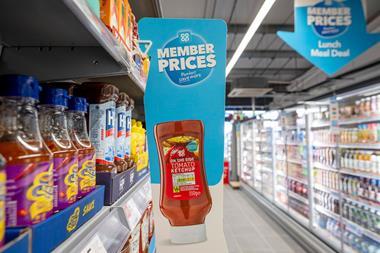The majority of the British public believes supermarket loyalty prices are a scam and that original prices have been doctored to make discounts look better, Retail Week can reveal.

According to exclusive research by Walnut Unlimited for Retail Week, 59% of shoppers believe that discounts in supermarket loyalty price schemes are made to look greater than they are.
The research also found that only 56% of shoppers felt loyalty prices offered good value for money, while more than half agreed that the new schemes made it harder to decipher which retailer offers the best value.
Supermarket loyalty schemes hit the headlines in autumn last year when it was alleged that some retailers had used “dodgy tactics” to make member prices seem better when they were often not significantly better than the general recent price or that at another supermarket.
In January, the Competition and Markets Authority announced it would begin a review of loyalty pricing to “help tackle cost-of-living pressures in the groceries sector”.
According to the CMA, the review will investigate whether shoppers are being misled, if the deals disadvantage any groups of shoppers and the impact of these schemes on shopper behaviour.
An update on the investigation is expected in July 2024.
“Supermarkets need to explore why UK families are less likely to feel that the schemes are offering them value,” said Walnut Unlimited research director Amy Nichols.
“Despite the potential mistrust in the supermarket loyalty discount prices, customers are likely to start feeling like there is ‘no choice’ but to sign up to each retailer’s loyalty scheme.
“This subtle change from ‘reward’ to ‘discount’ means customers need to use their loyalty card simply to get access to the lower prices.
“If they don’t believe the discount to be genuine, this may cause trust and loyalty issues with otherwise loyal customers.


























No comments yet